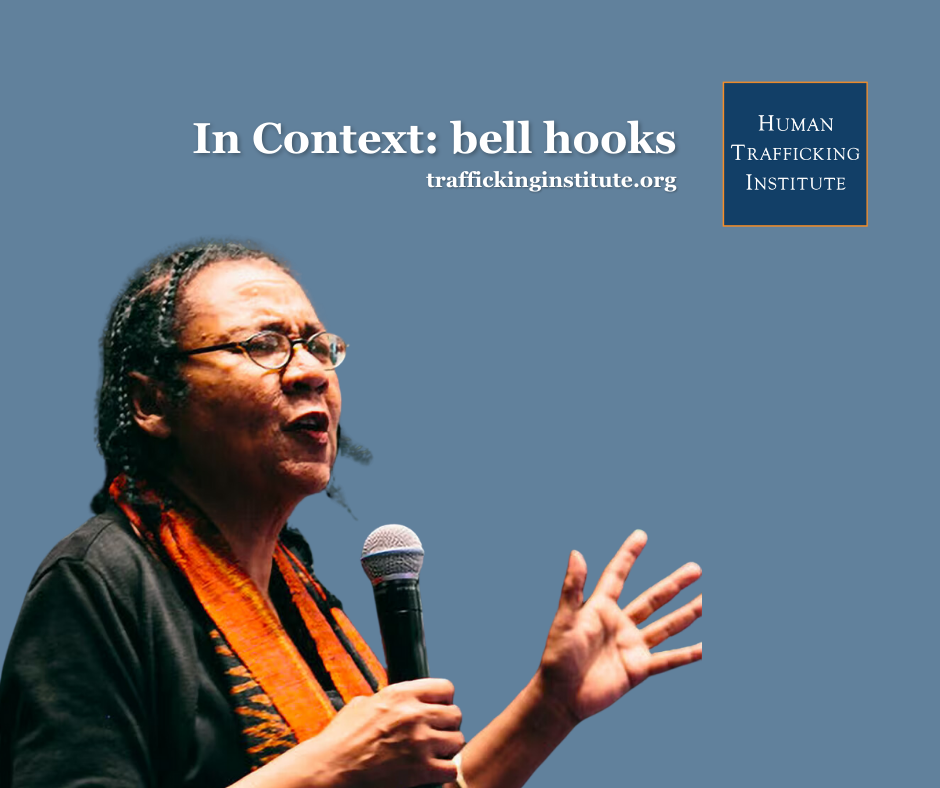Born on September 25, 1952, in Hopkinsville, Kentucky, and raised in a racially segregated South, Bell Hooks (born Gloria Jean Watkins) grew up in an environment deeply shaped by racial inequalities and injustices. Bell Hooks chose to adopt her great grandmother’s name as her pseudonym, retaining the lowercase spelling “bell hooks” to shift the spotlight away from herself and onto her profound message—an homage to the enduring legacies of women. Her early life experiences played a pivotal role in shaping her passion for justice and her commitment to challenging oppressive systems. hooks’ journey from her Southern roots to becoming an acclaimed author, feminist scholar, and advocate for justice is a testament to her determination to effect positive change.
Throughout her prolific career, bell hooks authored numerous books, essays, and articles that explored a wide range of topics, including feminism, race, class, education, and culture. Her writings are known for their accessibility and their ability to connect with both academic and general readers.
In “Ain’t I a Woman: Black Women and Feminism” (1981), hooks challenged prevailing notions of feminism, highlighting the unique struggles faced by Black women and advocating for an inclusive and intersectional feminist movement. This work remains a seminal text in feminist literature and continues to inspire discussions on race, gender, and intersectionality. In her following book, “Feminist Theory: From Margin to Center” (1984), hooks further explores the idea of shifting marginalized voices and experiences to the center of social justice movements, calling for a more inclusive and equitable approach in feminism and broader activism. These works collectively emphasize the importance of centering the voices and experiences of marginalized communities in the pursuit of social justice.
Although bell hooks passed away on December 15, 2021, her ideas and legacy continue to resonate with countless individuals. Her written works, characterized by their thoughtfulness and commitment to justice, continue to educate, challenge, and empower new generations of feminists and activists.
Bell hooks’ quote, “Justice demands integrity. It’s to have a moral universe — not only know what is right or wrong but to put things in perspective, weigh things. Justice is different from violence and retribution; it requires complex accounting,” succinctly emphasizes the multifaceted nature of justice. It highlights the importance of moral integrity, a nuanced understanding of right and wrong, and the necessity of considering various perspectives. Moreover, hooks distinguish justice from violence and retribution, emphasizing that it demands fairness and a comprehensive evaluation of complex situations. In essence, her quote calls for a deeper, more thoughtful approach to achieving justice in our world.




